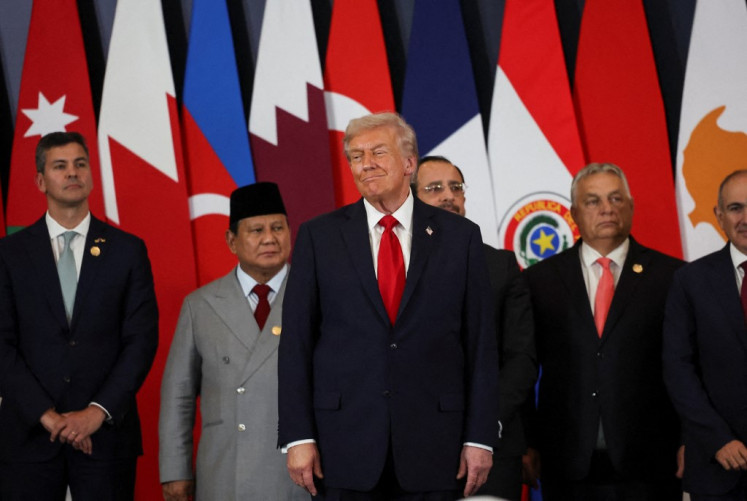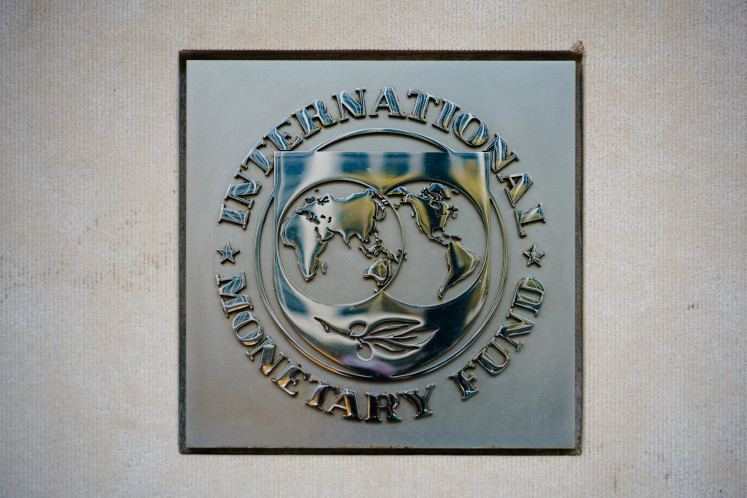Popular Reads
Top Results
Can't find what you're looking for?
View all search resultsPopular Reads
Top Results
Can't find what you're looking for?
View all search resultsNuclear power remains uncharted territory for RI
Indonesia is unlikely to resort to nuclear power to address its energy needs in the near future as the government itself is still undecided regarding the development and use of nuclear power
Change text size
Gift Premium Articles
to Anyone
I
ndonesia is unlikely to resort to nuclear power to address its energy needs in the near future as the government itself is still undecided regarding the development and use of nuclear power.
Nuclear power is a touchy issue in Indonesia. The largest economy in Southeast Asia has delayed nuclear development for years. Given that the country sits across the Pacific Ring of Fire, safety concerns have dominated most discussions on nuclear power and have hampered development.
Besides safety concerns, a major obstacle that poses a challenge is the country’s own National Energy Policy (KEN) design. It vaguely stipulates that nuclear power development should only be a “last resort”, thus prolonging uncertainties that revolve around nuclear.
To solve the issue once and for all, the National Energy Council (DEN), a body comprising seven ministers and eight stakeholders, plans to hold a meeting with President Joko “Jokowi” Widodo.
Energy and Mineral Resources Minister Sudirman Said, who serves as DEN’s chairman, said that it would propose to the President the possibility of developing nuclear energy if the government failed to meet its renewable energy goal by 2025. The use of nuclear will be included within the General Planning for National Energy (RUEN).
“Nuclear energy can be used if we cannot reach the 2025 renewable energy target. We will propose what is the most suitable [step] to the President,” Sudirman added.
Under the renewable energy target scheme, Indonesia will see renewable energy account for 23 percent of its total energy consumption by 2025. However, up until now, energy consumption is still largely made up by oil, hovering at around 44 percent of total consumption.
As discussions are likely to drag on further, neighbor Vietnam may well become Southeast Asia’s first country to develop nuclear power. Vietnam has reportedly put in place various programs to prepare itself for nuclear energy use and it could even have its first reactors by 2020.
Other countries are following suit.
Meanwhile, Industry Minister Saleh Husin recommended that the country start developing thorium-based nuclear power plants, making use of the abundant resources in Bangka Belitung Islands.
“Bangka Belitung is rich in thorium and [we should encourage nuclear power development] because industries will have a great need for energy at competitive prices,” he said following a meeting at the Energy and Mineral Resources Ministry.
Data from the Industry Ministry shows that there are potentially 170,000 tons of thorium reserves in Bangka Belitung. Approximately one ton of thorium is thought to produce 1,000 megawatts (MW) of energy a year.
Furthermore, thorium-based nuclear power plants are relatively cheaper compared to other power plants. A thorium-based plant costs 3 US cents per kilowatt hour (kWh). On the other hand, a steam-based power plant costs 5.6 cents per kWh and a gas-powered plant costs 4.8 cents per kWh. A wind-powered plant costs 18.4 cents per kWh and a solar power plant costs 23.5 cents per kWh.
Saleh claimed that innovation in the energy sector was needed because the industry sector consumed approximately 40 percent of national energy, making it the largest energy consumer in the country.
The mineral processing industry developing outside Java will be a sector that desperately needs electricity. The fertilizer and petrochemical industries will also need vast amounts of natural gas for production purposes.
Data from the Industry Ministry also shows that energy demand in the non-oil and gas manufacturing industry is predicted to reach 151 million tons of oil equivalent (MTOE) in 2035, far higher than the current 46.5 MTOE.
















